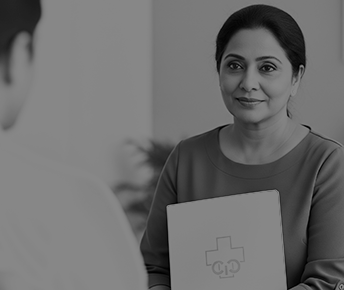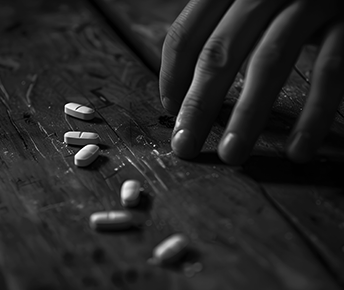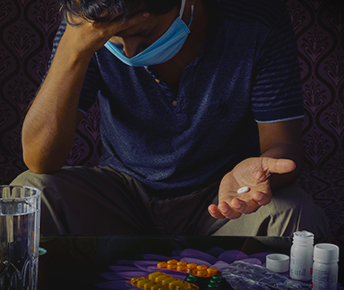Introduction
For many, Alcoholics Anonymous (AA) has been a life-saving path to sobriety. Its 12-step program has shaped the recovery journey for decades. But what if you don’t see yourself in it?
Maybe you don’t connect with the spiritual language. Maybe you’ve tried AA, but it didn’t click. Or maybe you're simply looking for an approach that feels more scientific, more flexible or just more you.
You’re not alone.
Today, more people than ever are exploring non 12-step treatment options alternatives that focus on empowerment, psychology, and personal choice. From SMART Recovery to moderation-based models and secular support systems, there are multiple paths to healing and this blog will help you find yours.
Whether you're beginning your journey or rethinking what recovery can look like, here's everything you need to know about the tools, communities, and therapies that ; beyond AA.
Why Some People Seek Alternatives to AA?
Alcoholics Anonymous (AA), founded in the 1930s, is a peer-support group built around a 12-step program that emphasizes surrendering to a higher power, admitting powerlessness over addiction, and making amends. While this spiritual and communal approach has helped millions, it doesn’t resonate with everyone. Some individuals feel uncomfortable with the religious undertones, others prefer science-based methods, and many are looking for more flexible, personalized definitions of sobriety.
Additionally, negative experiences in group settings can make traditional programs feel alienating. For those who don’t connect with the AA model, non 12-step treatment options offer alternative paths often more empowering, inclusive, and tailored to individual needs.
1. SMART Recovery
SMART Recovery (Self-Management and Recovery Training) is one of the most widely respected alternatives to traditional 12-step programs. Grounded in cognitive-behavioral therapy (CBT), it promotes self-empowerment over the idea of powerlessness. Unlike AA, SMART Recovery places no emphasis on a higher power, instead focusing on helping individuals build coping skills, develop emotional regulation, and use science-based tools and techniques to manage their recovery.
The program encourages critical thinking, personal responsibility, and is effective for both substance use and behavioral addictions. With support groups available online and in-person, SMART Recovery is ideal for those seeking a more practical, psychology-driven path to sobriety.
Also read: Therapy Options for Alcoholism: CBT, DBT, and More
2. Moderation-Based Approach
Not everyone struggling with substance use is aiming for total abstinence. For some, the idea of moderation is learning to reduce or manage consumption and feels more achievable, realistic, and personally empowering. Instead of seeing any use as a failure, moderation-based approaches focus on harm reduction and building healthier habits over time.
But what is moderation? It involves setting clear, safe limits on alcohol or drug use to avoid harmful consequences. It encourages self-awareness, accountability, and intentional decision-making, rather than relying on strict abstinence. The ;al is to create a balanced lifestyle, one where substances no longer control you.
Programs that support this model include:
- Moderation Management (MM) – Offers practical tools and ;al-setting strategies for people looking to cut back.
- HAMS (Harm Reduction, Abstinence, and Moderation Support) – A flexible, peer-led community that supports a wide range of recovery ;als, including safe drinking and gradual change.
Both of these are secular and peer-driven, making them especially appealing to those who want autonomy in their recovery without a spiritual or clinical framework. For individuals who don’t identify with labels like “addict” or “alcoholic,” moderation-based programs offer a judgment-free space to grow.
3. The Sobriety Foundation Approach
A newer and increasingly popular approach to recovery is building a sobriety foundation, a highly personalized path that matches an individual's values, strengths, and life ;als. Unlike rigid, one-size-fits-all models, this method combines therapeutic techniques, peer or professional support, and lifestyle changes to create a recovery plan that evolves with the person.
Key elements of a strong sobriety foundation often include developing emotional resilience, engaging in mindfulness or body-based therapies, setting clear daily ;als, and maintaining flexibility based on personal progress. Whether that support comes from a therapist, a trusted friend, or a non-traditional group, the focus is on empowerment and ownership, allowing individuals to keep what works and leave behind what doesn’t.
4. Secular Organizations for Sobriety Meetings
If you're looking for recovery support that is completely free from religion or spirituality, Secular Organizations for Sobriety (SOS) may be a ;od fit.
SOS meetings offer:
- Science-based recovery discussions
- Peer support without 12 steps
- Rational decision-making focus
- Diverse and inclusive communities
Many people who struggle with the spiritual aspects of Alcoholics Anonymous or Narcotics Anonymous find SOS a more welcoming environment.
5. Therapy-Based and Clinical Recovery Models
In addition to peer-support programs, many individuals benefit from therapy-based and clinical recovery models that offer structured, evidence-based treatment. These include CBT to change negative thought patterns, DBT for emotional regulation, Motivational Interviewing to boost internal motivation, and Trauma-Informed Therapy to address unresolved emotional pain.
Medication-Assisted Treatment (MAT) is also used in some cases to manage withdrawal symptoms and reduce cravings. Unlike community groups, these therapies are provided by licensed professionals and are especially effective for those with co-occurring mental health issues.
6. Narcotics Anonymous as a Recovery Option for Drug Use
While Narcotics Anonymous (NA) follows the traditional 12-step model like AA, it’s specifically designed for individuals struggling with drug addiction. The core principles remain the same; peer support, accountability, and personal growth, but NA meetings address a broader range of substances beyond alcohol.
For some, NA serves as a supportive foundation alongside other non 12-step options. Many individuals combine NA with therapy or alternative programs, using different tools at different stages of their recovery journey to build a more comprehensive support system.
Conclusion
Recovery isn’t one-size-fits-all and it shouldn’t feel like a box you have to squeeze into. If the traditional Alcoholics Anonymous 12 steps don’t align with your beliefs or needs, that’s perfectly okay. What truly matters is finding a path that resonates with you, one that supports your healing, respects your individuality, and empowers you to take ownership of your journey.
Whether you’re drawn to SMART Recovery, moderation-based approaches, or building a personalized sobriety foundation, there are many effective alternatives to AA. The key is knowing that you have options and that support is available.
At Samarpan Recovery, we offer a range of non-12-step treatment options in India, including therapy-based models, harm reduction strategies, holistic wellness, and relapse prevention programs.
Contact us today to explore a recovery approach that’s built around who you are and the life you want to create.
Frequently Asked Questions
What is the foundation of sobriety?
The foundation of sobriety is built on self-awareness, support, healthy coping skills, and a structured routine. It often includes therapy, community, and lifestyle changes tailored to individual needs.
Can non-alcoholics ; to AA?
AA is primarily for people with alcohol-related issues, but anyone with a desire to stop drinking is welcome. For other substances, groups like Narcotics Anonymous (NA) may be more appropriate.
What is the most successful treatment for addiction?
The most effective treatments combine therapy (like CBT), medical support, and on;ing relapse prevention. Success often comes from a personalized, multi-layered approach—there's no single solution for everyone.
Can you do AA without ;d?
Yes, many people interpret the "higher power" concept in a non-religious way. There are also secular alternatives to AA for those who prefer a ;d-free recovery path.























 Yes, many offer serene environments and solid therapeutic frameworks. However, quality varies, so it’s essential to research accreditation, staff credentials, and therapeutic depth.
Yes, many offer serene environments and solid therapeutic frameworks. However, quality varies, so it’s essential to research accreditation, staff credentials, and therapeutic depth.




